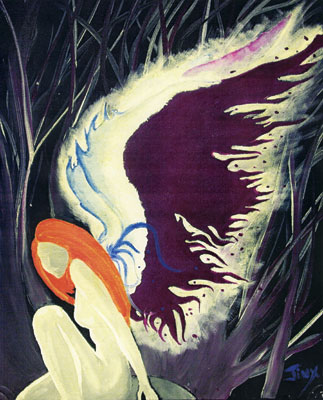All Nonfiction
- Bullying
- Books
- Academic
- Author Interviews
- Celebrity interviews
- College Articles
- College Essays
- Educator of the Year
- Heroes
- Interviews
- Memoir
- Personal Experience
- Sports
- Travel & Culture
All Opinions
- Bullying
- Current Events / Politics
- Discrimination
- Drugs / Alcohol / Smoking
- Entertainment / Celebrities
- Environment
- Love / Relationships
- Movies / Music / TV
- Pop Culture / Trends
- School / College
- Social Issues / Civics
- Spirituality / Religion
- Sports / Hobbies
All Hot Topics
- Bullying
- Community Service
- Environment
- Health
- Letters to the Editor
- Pride & Prejudice
- What Matters
- Back
Summer Guide
- Program Links
- Program Reviews
- Back
College Guide
- College Links
- College Reviews
- College Essays
- College Articles
- Back
But Not Too Different
It's cool to be different. We're always looking for what's new, cutting-edge, interesting, unique. One might say it's become cool to reject conformity. However, the nonconformity sanctioned by pop culture institutions always seems shallow and manufactured.
People pay a great deal of lip service to the idea of nonconformity. Nonconformity is a pleasant idea, but there is often some dissonance between our glamorisation of the idea of nonconformity, and our attitutes towards nonconformity done by an individual person in practise.
While watching American Idol this year, both the judges and contestants tend to overemphasise being “different” and “unique”. Indeed, “you are different” is considered to be among the highest compliments you can get from the judges. However, they are only supposed to be different and unique in a marketable and mainstream way.
It's also quite fitting to describe the auditioners who dress up like giant chickens and sing like horses giving birth as “different”. The difference is, that sort of thing isn't marketable. Such auditions are more often described as “weird”, “strange” and “bizarre”.
American Idol is a show that appears to support nonconformity, difference, quirkiness and individuality. However, the mocking light in which they portray the aforementioned giant-chicken-costumed contestants says otherwise. It all adds up to a mixed message-celebrate uniqueness, but laugh at weirdness. Embrace the quirky, mock the strange. Be different, but in a way that is marketable.
They're looking for someone different-but not too different. Someone whose “uniqueness” can be moulded into a neat and marketable package and sold to a mainstream audience. By definition, there are as many forms of uniqueness as there are stars in the sky, and American Idol has a narrow parameter for the “uniqueness” they are willing to embrace and sell. There are people whose uniqueness is not marketable to a mainstream audience.
This is reminiscent of when magazines scream about featuring real women-i.e, those bigger than size zero. And said “real” women are usually young, white, airbrushed, attractice, un-freckled, un-blemished, long-straight-haired and thinner than average. Once again, they're willing to go outside the norm, but not so far as to risk becoming unmarketable. They want to claim to be representing difference while consciously avoiding the risk that would entail.
America's Next Top Model puts a ridiculous emphasis on “having a unique look”. There is a high premium placed on being “different”, and even “alien-like” is supposed to be a good thing. But if they're so cool with difference, why aren't there ever any short fat models? Again, they want someone to be different, but in a way that falls within what they have deemed as acceptable.
In these examples, they're really only putting one toe in “nonconformity zone” while still standing safely in the realm of the mainstream. And that's the attitude a lot of people have about conformity and nonconformity. They glamorise certain forms of nonconformity and difference. The reality of failing to conform to society's norms, however, is not glamorous. It carries a great deal of risk-of being shunned, mocked, told off, persecuted or even killed depending on what sort of society you live in. The thing is, people pay a lot of lip service to nonconformity, but happily make fun of those who do not conform to their idea of “acceptable” nonconformity.
If one is to claim to embrace “difference”, one should put it upon oneself to embrace difference in all its forms. It's easy to say “embrace uniqueness!”, with a clear idea in your head about what uniqueness you are willing to embrace. Uniqueness isn't always glamorous, though. It's often subversive, uncomfortable, offensive, bizarre. I wish the media's attitude towards nonconformity wasn't wrapped up in such a mixed message. A lot of the time when companies claim to be embracing nonconformity, they are embracing a model of nonconformity that fits in with their marketing objective and serves their purpose. They want to be cutting-edge and distinctive, but it is always being done in a way to market a certain brand to a mainstream audience.

Similar Articles
JOIN THE DISCUSSION
This article has 21 comments.

It also annoys me on America's Next Top Model, how they celebrate "unique looks", yet all the models are uniformly tall and thin.
I also think people have a glamorised view of nonconformity, but make fun of nonconformity that doesn't fit in with the model of nonconformity they have glamorised.